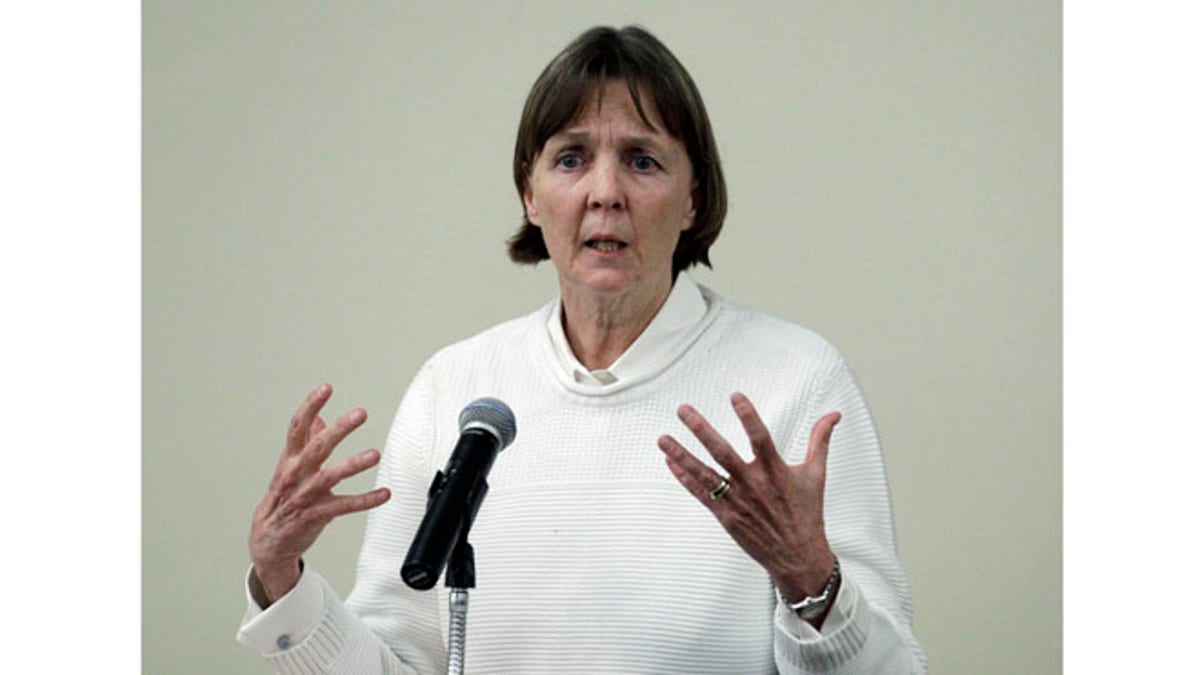
Judy Clarke, a defense lawyer whose high-profile clients include "Unabomber" Ted Kaczynski, Olympic bomber Eric Rudolph, and Tucson shooter Jared Lee Loughner, was appointed Monday to the team representing Dzhokhar Tsarnaev, the suspect in the Boston Marathon bombings ((AP Photo/Reed Saxon))
A staunch anti-Death Penalty lawyer has been assigned to the defense team for Boston Marathon Bombing suspect Dzhokhar Tsarnaev and will like have a paycheck paid for by taxpayer’s dollars.
United States Magistrate Judge Marianne B. Bowler in response to a motion has allowed the defense’s request to appoint Judy Clarke as an attorney on Monday. Clarke, a staunch opponent to the Death Penalty, has represented several high-profile criminals including the Unabomber and the gunman whose rampage injured former Arizona Rep. Gabrielle Giffords with an uncanny knack for brokering deals in which clients receive life sentences in exchange for guilty pleas.
Bowler, in her response, stated that, “In light of the circumstances of this case, the defendant requires an attorney with more background, knowledge and experience in federal death penalty cases than that possessed by current counsel.”
“Appointment of Attorney Clarke is therefore justified to provide the defendant with adequate and proper representation,” she added in the written ruling.
Clarke, 60, will join a team of three public defenders for Tsarnaev, with speculation that she will possibly seek the same fate for the suspect as her former client Jared Loughner, the gunman who shot and severely injured Former U.S. Representative Gabrielle Giffords and killed six people in Tuscon in January 2011.
Clarke brokered a deal in that case in which Loughner pleaded guilty to 19 counts of murder and attempted murder in exchange for a life sentence in prison.
Also raising the ire of the public is that Clarke’s salary, and possibly her living expenses, will be paid for by the state with taxpayer dollars.
“I think there is an appropriate level of outrage that the same taxpayers who were injured or lost limbs in an act of terrorism are forced to pay for the expense of hiring an additional defense lawyer when not only is the Massachusetts Federal Defender office well equipped to handle this case, there is no constitutional requirement that a defendant be provided with the very best lawyer available,” Jason Stern, a New York City-based criminal defense attorney said to FoxNews.com. “Our constitution guarantees every defendant a right to an attorney in the event that he cannot afford one, but the fundamental question is what in the US Constitution affords a mass murderer or terrorist the right to a veritable 'dream team' of lawyers?”
“Certainly, in a local murder or rape case without this level of media attention, you won't find top lawyers falling over each other to fly in and petition the court to represent the defendant.” He added.
While Clark will be paid with public funds, there will be guidelines and every associated cost must be approved by the court.
“It’s not an open check. There are limits,” Kent Scheidegger, Legal Director of the Criminal Justice legal Foundation said to FoxNews.com. “It’s not surprising. It’s standard practice.”
“I don’t see a problem with the right to have a good lawyer; the bigger concern is the federal law, which has a glaring flaw when it comes to Death Penalty cases,”
Scheidegger added that in federal case such as Tsarnaev’s, a jury can vote 11-to-1 in favor of the death penalty and still be sentenced to a life term—such as the verdict in the trial of Zacarias Moussaoui.
“It would be very surprising if there wasn’t a juror who refuses to vote for the death penalty,” he added. “And I wouldn’t be surprised if the Defense’s whole case is built around that.”
Clarke did not respond to request for comment from FoxNews.com, during a speech at a legal conference in California the normally reclusive attorney opened up about her work and her stance against the death penalty.
Declining to take questions from the audience, Clark talked about how she had been "sucked into the black hole, the vortex" of death penalty cases 18 years ago when she represented Susan Smith, who was found guilty of drowning two children.
"I got a dose of understanding human behavior and I learned what the death penalty does to us," she said. "I don't think it's a secret that I oppose the death penalty.”
"The first clear way death cases are different is the clients. Most have suffered from serious severe trauma, unbelievable trauma. We know that from brain research. Many suffer from severe cognitive development issues that affect the core of their being." She said, adding that when she first meets her clients, they are steadfast in not wanting to plead guilty and that her job is to change their resolve.
"They're looking into the lens of life in prison in a box," she said. "Our job is to provide them with a reason to live."
The Associated Press contributed to this story.

